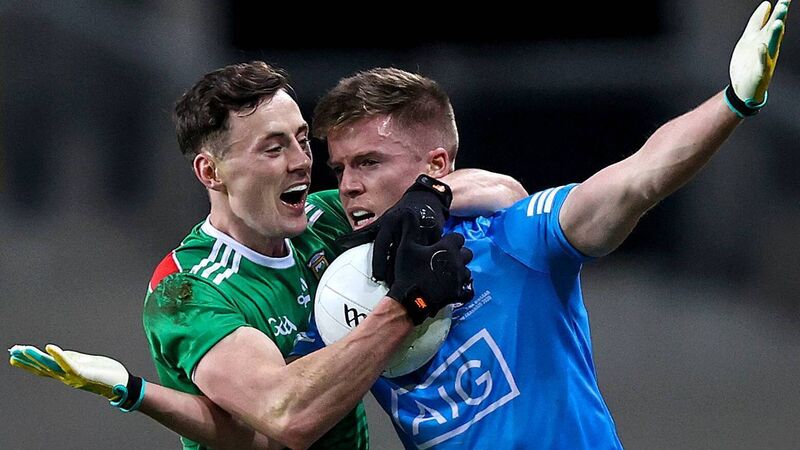Kieran Shannon: Don’t blame players or coaches for ‘boring’ Gaelic football. Blame the rules

Dublin's Robbie McDaid with Diarmuid O’Connor of Mayo during the 2020 All-Ireland Hurling final. Picture: INPHO/Tommy Dickson
Try from €1.50 / week
SUBSCRIBE
Dublin's Robbie McDaid with Diarmuid O’Connor of Mayo during the 2020 All-Ireland Hurling final. Picture: INPHO/Tommy Dickson
If it’s any consolation to Gaelic football, it’s not the only sport that has had people pondering how it is that while its players have never been better, the game itself probably is not.
In the past month as Dinny Allen, Kevin McStay, and Pat Spillane publicly expressed their concern with how the sport they once played is trending, several observers have been wondering something similar about Stateside sports, summarised in a podcast over the weekend by The Ringer’s Chris Ryan entitled: What’s wrong with the NBA?
Already a subscriber? Sign in
You have reached your article limit.
Annual €130 €80
Best value
Monthly €12€6 / month
Introductory offers for new customers. Annual billed once for first year. Renews at €130. Monthly initial discount (first 3 months) billed monthly, then €12 a month. Ts&Cs apply.
Newsletter
Latest news from the world of sport, along with the best in opinion from our outstanding team of sports writers. and reporters
Newsletter
Latest news from the world of sport, along with the best in opinion from our outstanding team of sports writers. and reporters
Thursday, February 12, 2026 - 2:00 PM
Thursday, February 12, 2026 - 4:00 PM
Thursday, February 12, 2026 - 4:00 PM
© Examiner Echo Group Limited